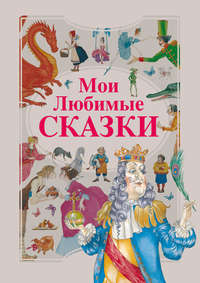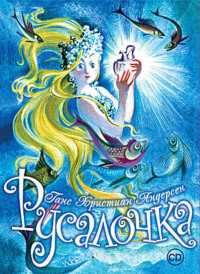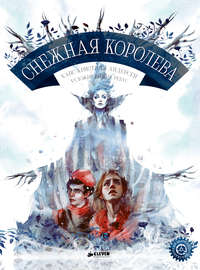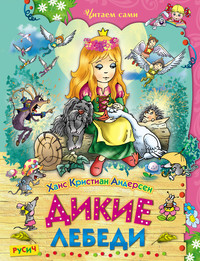 полная версия
полная версияO. T., A Danish Romance
“This might become a pretty little room,” said the Kammerjunker, “but we have enough, and therefore we let this, for curiosity’s sake, remain in its old state. The moon is worth its money!” and he pointed toward the vaulted ceiling, where the moon was represented as a white disk, in which the painter, with much naïveté, had introduced a man bearing a load of coals upon his back; in faithful representation of the popular belief regarding the black spot in the moon, which supposes this to be a man whom the Lord has sent up there because he stole his neighbor’s coal. “That great picture on the right, there,” pursued he, “is Mrs. Ellen Marsviin; I purchased it at an auction. One of the peasants put up for it; I asked him what he would do with this big piece of furniture—he could never get it in through his door. But do you know what a speculation he had? It was not such a bad one, after all. See! the rain runs so beautifully off the painted canvas, he would have a pair of breeches made out of it, to wear in rainy weather behind the plough; they would keep the rain off! I thought, however, I ought to prevent the portrait of the highly honorable Mrs. Ellen Marsviin being so profaned. I bought it: now she hangs there, and looks tolerably well pleased. The peasant got a knight instead—perhaps one of my own ancestors, who was now cut up into breeches. See, that is what one gets by being painted!”
“But the cupboard in the pillar there?” inquired Otto.
“There, certainly, were Bibles and Prayer-books kept. Now I have in it what I call sweetmeats for the Chancery-counselor Thomsen: old knives of sacrifice, coins and rings, which I have found in the horse-pond and up yonder in the cairns: not a quarter of a yard below the turf we found one pot upon another; round each a little inclosure of stones—a flat stone as covering, and underneath stood the pot, with burnt giants’ bones, and a little button or the blade of a knife. The best things are already gone away to Copenhagen, and should the Counselor come, he will, God help me! carry away the rest. That may be, then, willingly, for I cannot use the stuff, after all.”
After coffee, the guests wandered through the old garden: the clearing away of the mud was more closely observed, the dairy and pig-sty visited, the new threshing-machine inspected. But now the Russian bath should be also essayed; “it was heated!” But the end of the affair was, that only the Kammerjunker himself made use of it. The dinner-table was prepared, and then he returned. “But here something is wanting!” exclaimed he; left the room, and returned immediately with two large bouquets, which he stuck into an ale-glass which he placed upon the table. “Where Miss Sophie dines, the table must be ornamented with flowers: certainly we cannot lay garlands, as you do!” He seated himself at the end of the table, and wished, as he himself said, to represent the President Lars: they had had the “Wandsbecker Boten” half a year in the house, and it would certainly please Miss Sophie if they betrayed some acquaintance with books. This Lars and the flowers, here, meant quite as much as in the south a serenade under the windows of the fair one.
When, toward evening, the carriage for their return drew up before the door, Otto still stood contemplating some old inscriptions which were built into the tower-wall.
“That you can look at another time,” said Jakoba; “now you must be of use a little!” And she reached him the ladies’ cloaks.
Amidst promises of a return visit and the parting yelping of the dogs the carriage rolled away.
“I have fairly fallen in love with the old place!” said Sophie.
“The Kaminerjunker gains much upon nearer acquaintance,” said Otto.
They bad now reached the furthest extremity of the garden. A flower-rain showered itself over them and the carriage. The Kammerjunker, Jakoba, and the Mamsell, had taken a shorter way, and now waved an adieu to the travellers, whilst at the same time they scattered hyacinths and stocks over them. With a practiced hand Jakoba threw, as a mark of friendship, a great pink straight into Otto’s face. “Farewell, farewell!” sounded from both sides, and, accompanied by the sound of the evening-bell from the near village, for it was sunset, the carriage rolled away.
CHAPTER XI
“Dance and stampTill the shoe-soles drop!”—Danish Popular Song.On the following day should the much-talked-of mowing-festival take place. It was the hay-harvest which occasioned all this merriment.4
During three afternoons in succession, in the inner court and under free heaven, should a ball be held. Along the walls, rough planks, laid upon logs of wood, formed a row of benches. At both ends of the court lay two barrels of the newly brewed ale, which had received more malt than usual, and which, besides, through the silver skilling, and the magic dance of the maidens round the tub, had acquired extraordinary strength. A large wooden tankard, containing several measures of brandy, stood upon a table; the man who watched the bleaching-ground was placed as a kind of butler to preside at this sideboard. A bread-woman, with new white bread from Nyborg upon her barrow, wheeled into the court, and there established her stall for every one; for it was only liquors the guests received gratis.
The guests now entered the court by pairs; the men, part in jackets, part in long coats which hung down to their ankles. Out of the waistcoat-pocket protruded a little nosegay of sweet-williams and musk. The girls carried their “posies,” as they called them, in their neatly folded pocket-handkerchiefs. Two musicians—one quite a young blade, in a laced coat with a stiff cravat, mid the other the well-known Peter Cripple, “Musikanti” as he was called—led the procession. They both played one and the same piece, but each according to his own manner. It was both good and old.
They now began to draw lots, who should dance before the door of the family and who before that of the steward; after which the two parties drew lots for the musicians. The girls seated themselves in a row upon the bench, from whence they were chosen. The gallantry accorded with the ball-room,—the hard stone pavement. Not even had the grass been pulled up, but that would be all right after dancing there the first day. “Nay, why art thou sitting there?” spoken with a kind of morose friendliness, was the invitation to dance; and this served for seven dances. “Only don’t be melancholy!” resounded from the company, and now the greater portion moved phlegmatically along, as if in sleep or in a forced dance: the girl with her eyes staring at her own feet, her partner with his head bent toward one side, and his eyes in a direct line with the girl’s head-dress. A few of the most active exhibited, it is true, a kind of animation, by stamping so lustily upon the stone pavement that the dust whirled up around them. That was a joy! a joy which had occupied them many weeks, but as yet the joy had not reached its height; “but that will soon come!” said Wilhelm, who, with his sister and Otto, had taken his place at an open window.
The old people meanwhile kept to the ale-barrels, and the brandy. The latter was offered to the girls, and they were obliged, at least, to sip. Wilhelm soon discovered the prettiest, and threw them roses. The girls immediately sprang to the spot to collect the flowers: but the cavaliers also wished to have them, and they were the stronger; they, therefore, boldly pushed the ladies aside, so that some seated themselves on the stone pavement and got no roses: that was a merry bit of fun! “Thou art a foolish thing! It fell upon thy shoulder and thou couldst not catch it!” said the first lover to his lady, and stuck the rose into his waistcoat-pocket.
All got partners—all the girls; even the children, they leaped about to their own singing out upon the bridge. Only ONE stood forlorn,—Sidsel, with the grown-together eyebrows; she smiled, laughed aloud; no one would become her partner. Peter Cripple handed his violin to one of the young men and asked him to play, for he himself wished to stretch his legs a little. The girls drew back and talked with each other; but Peter Cripple stepped quietly forward toward Sidsel, flung his arms around her, and they danced a whirling dance. Sophie laughed aloud at it, but Sidsel directed her extraordinary glance maliciously and piercingly toward her. Otto saw it, and the girl was doubly revolting and frightful in his eyes. With the increasing darkness the assembly became more animated; the two parties of dancers were resolved into one. At length, when it was grown quite dark, the ale barrels become empty, the tankard again filled and once more emptied, the company withdrew in pairs, singing. Now commenced the first joy, the powerful operation of the ale. They now wandered through the wood, accompanying each other home, as they termed it; but this was a wandering until the bright morning.
Otto and Wilhelm were gone out into the avenue, and the peasants shouted to them a grateful “Good night!” for the merry afternoon.
“Now works the witchcraft!” said Wilhelm; “the magical power of the ale! Now begins the bacchand! Give your hand to the prettiest girl, and she will immediately give you her heart!”
“Pity,” answered Otto, “that the Maenades of the north possess only that which is brutal in common with those of the south!”
“See, there goes the smith’s pretty daughter, to whom I threw the best rose!” cried Wilhelm. “She has got two lovers, one under either arm!”
“Yes, there she goes!” simpered a female voice close to them. It was Sidsel, who sat upon the steps of a stile almost concealed in the darkness, which the trees and the hedge increased still more.
“Has Sidsel no lover?” asked Wilhelm.
“Hi, hi, hi,” simpered she; “the Herr Baron and the other gentleman seek, doubtless, for a little bride. Am I beautiful enough? At night all cats are gray!”
“Come!” whispered Otto, and drew Wilhelm away from her. “She sits like some bird of ill omen there in the hedge.”
“What a difference!” exclaimed Wilhelm, as he followed; “yes, what a difference between this monster, nay, between the other girls and Eva! She was, doubtless, born in the same poverty, in similar circumstances, and yet they are like day and night. What a soul has been given to Eva! what inborn nobility! It must be, really, more than a mere freak of Nature!”
“Only do not let Nature play her freaks with you!” said Otto, smiling, and raised his hand. “You speak often of Eva.”
“Here it was association of ideas,” answered Wilhelm. “The contrast awoke remembrance.”
Otto entered his chamber—he opened the window; it was a moonlight night. From the near wood resounded laughter and song. They came from the young men and girls, who, on their wandering, gave themselves up to merriment. Otto stood silent and full of thought in the open window. Perhaps it was the moon which lent her paleness to his countenance. On what did he reflect? Upon his departure, perhaps? Only one more day would he remain here, where he felt himself so much at home; but then the journey was toward his own house, to his grandfather, to Rosalie, and the old preacher, who all thought so much of him. Otto stood listening and silent. The wind bore the song more distinctly over from the wood.
“That is their joy, their happiness!” said he. “It might have been my joy also, my happiness!” lay in the sigh which he heaved. His lips did not move, his thoughts alone spoke their silent language. “I might have stood on a level with these; my soul might have been chained to the dust, and yet it would have been the same which I now possess, with which I long to compass all worlds! the same, endowed with this sentiment of pride, which drives me on to active exertion. My fate wavered whether I should become one such as these or whether I should rise into that circle which the world calls the higher. The mist-form did not sink down into the mire, but rose above into the high refreshing air. And am I become happy through this?” His eye stared upon the bright disk of the moon. Two large tears rolled over his pale cheeks. “Infinite Omnipotence! I acknowledge Thy existence! Thou dost direct all; upon Thee will I depend!”
A melancholy smile passed over his lips; he stepped back into the chamber, folded his hands, prayed, and felt rest and peace.
CHAPTER XII
“The travellers roll through the world of men,Like rose leaves in a stream.The past will ne’er come back again,But fade into a dream.”—B. S. INGEMANN.The following day, the last before Otto’s departure, whilst he and Wilhelm were walking in the garden, Sophie approached them with a garland made of oak-leaves: this was intended for Otto; they were now really to lose him.
“Sophie will scarcely be up so early to-morrow morning,” said Louise; “she is, therefore, obliged to present her garland to-day. I am never missing at the breakfast-table, as you well know; and I shall then bring my bouquet.”
“I shall preserve both until we meet again,” returned Otto; “they are vignettes to my beautiful summer-dream. When I again sit in Copenhagen, when the rain patters and the winter approaches with cold and a joyless sky, I shall still see before me Funen with its green woods, flowers, and sunshine; it will appear to me that it must still be so there, and that the garland and bouquet are only withered because they are with me in the winter cold.”
“In Copenhagen we shall meet again!” said Sophie.
“And I shall see you again with the swallows!” said Louise, “when my flowers spring up again, when we have again warm summer days! As far as I am concerned, you belong to the summer, and not to the cold, calm winter.”
Early on the following morning was Sophie, after all, at the breakfast table. That was to honor Otto. Mamma showed herself as the carriage was at the door. Wilhelm would accompany him as far as Odense. It was, therefore, a double leave taking, here and there.
“We will always remain friends, faithful friends!” said Wilhelm, when they parted.
“Faithful friends!” repeated Otto, and they rolled away toward Middelfart; thus far should mamma’s own carriage convey the excellent Otto. Wilhelm remained behind in Odense; his coachman drove Otto, and they discoursed upon the way. They passed Vissenberg: the high, wooded hills there have received the name of the Funen Alps. The legend relates of robbers who had here deep passages underneath the high-road, where they hung bells which rang when any one passed above. The inhabitants are still looked upon with suspicion. Vissenberg appears a kind of Itri, between Copenhagen and Hamburg.5 Near the church there formerly lay a stone, on which Knud, the saint, is said to have rested himself when flying from the rebellious Jutlanders. In the stone remained the impression of where he had sat; the hard stone had been softer than the hearts of the rebellious people.
This, and similar legends, the coachman knew how to relate; he was born in this neighborhood, but not in Vissenberg itself, where they make the false notes.6 Every legend gains in interest when one hears it in the place with which it is connected. Funen is especially rich in such relations.
“That cairn elevates itself at Christmas upon four red posts, and one can then see the dance and merriment of the goblins within. Through that peasant’s farm there drives every night a glowing coach, drawn by four coal-black horses. Where we now see a pond overgrown with reeds and roots there once stood a church, but it sank as the godless desecrated it; at midnight we still hear their sighs, and hymns of repentance.”
It is true that the narrator mixed up together certain leg-ends which related to other places in the country—that he took little springs, and mingled his own thoughts with his relations; but Otto listened to him with great interest. The discourse turned also upon the family at the hall.
“Yes, they are very much liked!” said the coachman; “the gentleman may believe we know how to value them.”
“And now, which of the young ladies is the best?” asked Otto.
“Yes, every one is best served by Miss Louise,” returned the fellow.
“Miss Sophie is the prettiest,” said Otto.
“Yes, she is also very good,—she belongs to the learned ones! She knows German, that she does! she can act comedy very excellently! I once got permission with the rest of the people to be up-stairs in the sitting-room—we stood behind the family; she did not manage her affairs at all badly.”
However much the old legends interested Otto, it seemed as though he listened with more pleasure to the simple reasonings of the coachman upon the family who were become so dear to him. Words and thoughts were busied about the objects there. Wilhelm, however, was and still remained the dearest; he recollected with what mildness Wilhelm had stretched forth his hand in reconciliation, when he himself had thrust him from him. Already the happy summer days which he had spent at the country-seat, the whole visit, appeared a beautiful but short dream.
Otto felt an inward impulse to express his gratitude; his pride even, which was a fundamental feature of his character, commanded him to do this. Wilhelm’s affection, his desire for a continued friendship, Otto thought he must reward; and on this account he added the following words to the few lines which he gave the coachman before his passage over the Little Belt:—
“Wilhelm, in future we will say thou to each other; that is more confidential!” “He is the first to whom I have given my thou,” said Otto, when the letter was dispatched. “This will rejoice him: now, however, I myself have for once made an advance, but he deserves it.”
A few moments later it troubled him. “I am a fool like the rest!” said he, and wished he could annihilate the paper. He was summoned on board. The Little Belt is only a river between the two countries; he soon found himself upon Jutland ground; the whip cracked, the wheels turned round, like the wheels of fortune, up and down, yet ever onward.
Late in the evening he arrived at an inn. From his solitary chamber his thoughts flew in opposite directions; now toward the solitary country-seat of his grandfather, among the sand-hills; now toward the animated mansion in Funen, where the new friends resided. He had opened his box and taken out what lay quite at the top, the garland of oak-leaves and the beautiful bouquet of flowers of this morning.
Most people maintain that one dreams at night of that which one has thought much about. According to this, Otto must have thought a deal about the North Sea, for of it he dreamed the whole night,—not of the young ladies.
CHAPTER XIII
“The heat-lark warbles forth his sepulchral melodies.”
S. S. BLICHER.The peninsula of Jutland possesses nothing of the natural beauty which Zealand and Funen present—splendid beeches and odoriferous clover-fields in the neighborhood of the salt sea; it possesses at once a wild and desolate nature, in the heath-covered expanses and the far-stretching moors. East and west are different; like the green, sappy leaf, and grayish white sea-weed on the sea shore. From the Woods of Marselisborg to the woods south of Coldinger Fjord, is the land rich and blooming; it is the Danish Nature in her greatness. Here rises the Heaven Mountain, with its wilderness of coppice and heather; from here you gaze over the rich landscape, with its woods and lakes, as far down as the roaring Cattegat.
The western coast, on the contrary, lies without a tree, without bushes, with nothing but white sand-hills stretching along the roaring ocean, which scourges the melancholy coast with sand-storms and sharp winds. Between these contrasts, which the east and west coasts present, the Hesperides and Siberia, lies the vast heath which stretches itself from the Lyneborg sand to the Skagen’s reef. No hedge shows here the limits of possession. Among the crossing tracks of carriage wheels must thou seek thy way. Crippled oaks, with whitish-green moss overgrown to the outermost branches, twist themselves along the ground, as if fearing storms and the sea-mist. Here, like a nomadic people, but without flocks, do the so-called Tartar bands wander up and down, with their peculiar language and peculiar ceremonies. Suddenly there shows itself in the interior of the heathy wilderness a colony—another, a strange people, German emigrants, who through industry compel the meagre country to fruitfulness.
From Veile, Otto wished to take the road through Viborg, as the most direct and the shortest to his grandfather’s estate, which lay between Nisumfjord and Lemvig.
The first heath-bushes accosted him as dear friends of his childhood. The beautiful beech-woods lay behind him, the expanse of heath began; but the heath was dear to him: it was this landscape which formed the basis of many dear recollections.
The country became ever higher with brown heights, beyond which nothing was visible; houses and farms became more rare, the cherry orchards transformed themselves into cabbage-gardens. Only single spots were free from heather, and here grew grass, but short, and like moss or duckweed which grows upon ponds: here birds congregated by hundreds, and fluttered twittering into the air as the carriage drove past.
“You know where to find the green spot in the heath, and how to become happy through it,” sighed Otto. “Could I only follow your example!”
At a greater distance rose bare hills, without ling or ploughed land; the prickly heath looked brown and yellow on the sharp declivities. A little boy and girl herded sheep by the way-side; the boy played the Pandean pipe, the little girl sang a psalm,—it was the best song which she knew how to sing to the traveller, in order to win a little present from him.
The day was warm and beautiful, but the evening brought the cold mist from the sea, which, however, in the interior of the country loses something of its power.
“That is a kiss of welcome from my home,” said Otto; “the death-kiss of the mermaid! In Funen they call it the elf maiden.”
Within the last few years a number of children have been sent from the Orphan Asylum to the heath, in order that, instead of Copenhagen rogues, they may become honest Jutland peasants. Otto had a boy of this description for his coachman. The lad was very contented, and yet Otto became low-spirited from his relation. Recollections from his own life stirred within his breast. “Return thanks to God,” said he, and gave the lad a considerable present; “on the heath thou hast shelter and a home; in Copenhagen, perhaps, the sandy beach would have been thy nightly resting-place, hunger and cold the gifts which the day would bring thee.”
The nearer he approached the west, the more serious became his frame of mind; it was as if the desolate scenery and cold sea-mist entered his soul. The pictures of the gay country-seat at Funen were supplanted by recollections of his home with his grandfather. He became more and more low-spirited. It was only when a single mile separated him from his home that the thought of surprising his dear friends conquered his melancholy.
He caught sight of the red roof of the house, saw the willow plantations, and heard the bark of the yard-dog. Upon the hillock before the gate stood a group of children. Otto could no longer endure the slow driving through the deep ruts. He sprang out of the carriage, and ran more than he walked. The children on the hillock became aware of him, and all looked toward the side from whence he came.
The slow driving, and his being absorbed in melancholy fancies, had relaxed his powerful frame; but now in one moment all his elasticity returned: his cheeks glowed, and his heart beat loudly.
From the court resounded singing—it was the singing of a psalm. He stepped through the gateway. A crowd of peasants stood with bared heads: before the door stood a carriage, some peasants were just raising a coffin into it. In the doorway stood the old preacher, and spoke with a man clad in black.
“Lord Jesus! who is dead?” were Otto’s first words, and his countenance became pale like that of a corpse.
“Otto!” all exclaimed.
“Otto!” exclaimed also the old preacher, astonished; then seized his hand, and said gravely, “The Lord gave, and the Lord hath taken away; blessed be the name of the Lord!”
“Let me see the face of the dead!” said Otto. Not a tear came to his eye; surprise and sorrow were too great.
“Shall I take out the screws?” inquired the man who had just screwed up the coffin.









